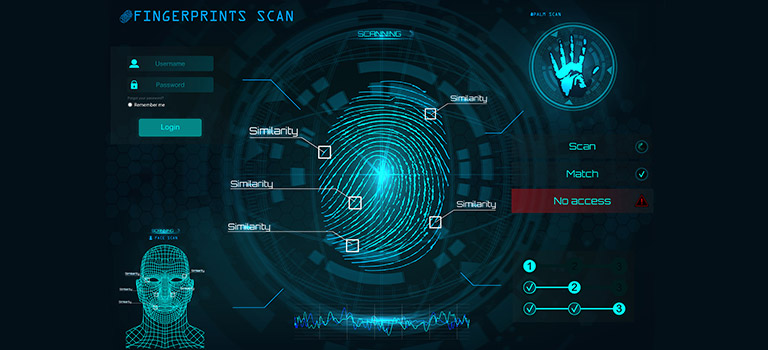Advances in biometric technology have transformed the conventional ways of identification and verification. As a result, innovation has become a prime focal point for reducing the efforts of people. This is achieved with new forms of verification and ensuring the security. From vocal biometric technology used for telephone banking to approving new patents for Apple’s acoustic imaging system, innovation has gained traction with development of new verification methods.
Moreover, an airport in India has squired face scanners that would eliminate the need to print a boarding pass. Additionally, the Philippines government has acquired fingerprint-based biometric technology for conducting elections in a safe and fair manner. The market for biometric technology experienced a huge boost with the trend of innovation and deployment for security purposes. According to the research firm Allied Market Research, the global biometric technology market is expected to reach $10.72 billion by 2022. Following are some the recent activities that are shaping the industry:
Innovation in Biometric Technology Will Transform Our Conventions
Innovation is at the center of the biometric technology. Santander will launch the U.K.’s first telephone banking service that will work with the help of voice biometric technology and phone ID. This banking service would recognize users with the help of a unique biometric marker. The bank stated that this would make the telephone banking secure and phone identification more simple than before. As a result, millions of customers of the bank will be benefited.
Phone ID and Voice ID
The combination of Phone ID and Voice ID will free customers from entering personal ID or security numbers for completion of authentication. In fact, the initial process of enrollment involves repeating a short phrase to create a unique voice print. Following that, the customers need to call from the registered phone number to verify the identity. The service utilizes more than 100 features from a human voice. Moreover, the technology is so advanced that it can detect if someone’s voice is played on a recorder. This will also prevent the fraud. Reza Attar-Zadeh, head of customer interactions at Santander UK, outlined that the new combination offers a seamless and simple way of authentication to customers. Additionally, this combination offers the highest standards of security.
Apple and innovation always will share a bond. Therefore, it makes sense that Apple would be wading in the biometric technology pool early on. As an example, the leading tech giant has received a patent for its alternative Touch ID fingerprint technology for authentication. Moreover, the company reported that the use of an acoustic imaging system for authentication purpose. The system utilizes one or more tomographic reconstruction techniques including diffraction, transmission, and others. It can also capture different characteristics from a user for biometric authentication from palm and other parts of the body. The same technology can also gathering information about various physiological properties. This includes heart rate, blood oxygenation, and respiration rate for health monitoring purposes.
Security at Airports
Security is one of the prime objectives of any nation. Therefore, to ensure security and safety, biometric technology continues to play a vital part over the past few decades. Our biometric security applies to a varity of applications. However, one of the most crucial deployments of biometric technology is airports. Along with ensuring security, the Kempegowda International Airport (KIA) at Bengaluru, India will deploy a facial recognition technology by the third quarter of 2019. This will make KIA the first airport in the country to utilize the technology.
This program will conduct under the Digi Yatra programme by the Ministry of Civil Aviation. The Bangalore International Airport Limited (BIAL) spokesperson outlined that the Digi Yatra Biometric Boarding System (BBS) is progressing at the KIA. The trials were conducted at the end of March, the manufacturing process of hardware began after the successful testing, and the rollout of the service is expected to begin by Q3 of 2019. With implementation of this system, the passengers do not need to print their boarding pass. They need to pass through the security scanners equipped with an advanced biometric security system. The program will use paperless self-boarding technology in phase at airports of Delhi, Hyderabad, and Mumbai once it is implemented at KIA.
Election Security
Conducting election in the peaceful and fair manner is important for a country. The Philippines Commission on Elections (COMELEC) has a fingerprint biometric technology voter verification system from Gemalto for the 2019 elections. This deal also involves Nextix as technology partners for development, implementation, and support of the system. There will be nearly 30,000 biometric tablets with Voter Verification System.
These systems help authorities verify the identity of voters through fingerprints. This would also help reduce frauds and waiting times. COMELEC spokesperson Dir. James Jimenez outlined that Gemalto’s system would streamline the verification process, along with offering convenience to citizens. Moreover, it will provide quality and confidentiality of data. This will also prevent citizens from voting multiple times with different identities.
Tags: Airports, Biometrics, Elections, Future of Tech, Global Market, Security, Technology, Voice ID


